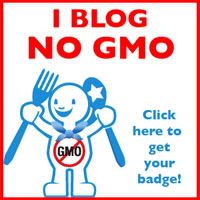
My first Organic Tee’s were bought just a few months back. Not because I’m not totally for buying organic clothes or the fact that they cost more, but for the simple fact that I don’t buy a lot of clothes.
So, I needed some new t-shirts. They were on clearance and they were 100% Organic. I felt like I had won the lottery that day, so I bought six. The only thing that got me down was the fact that they weren’t made in the USA, since that is where I live. The tag less tee says; Algodon Organico , Made in Guatemala. Now this really doesn’t help me cut down on my Carbon Foot Print any. So I would hope that this was a Fair Trade Company, although I was unable to find any info regarding the tee’s I bought.
Facts about non-organic cotton that made me glad I switched include;
**one-third of a pound of chemicals are needed just to grow enough conventional cotton for a regular T-shirt.
**conventional cotton is responsible for about 25% of the world’s insecticides and about 15% of the world’s pesticides.
**The World Health Organization estimates that at least three million people are poisoned by pesticides every year and 20-40,000 more are killed.
**Fourteen million people in the U.S. are routinely drinking water contaminated with carcinogenic herbicides and 90 percent of municipal water treatment facilities lack equipment to remove these chemicals.
**Cotton is also an important food source for humans and animals. Cotton is comprised of 40% fiber and 60% seed by weight. Once separated in the gin, the fibers go to textile mills, while the seed and various ginning by-products are used for animal feed and for human food, mostly in the form of cottonseed oil. Cottonseed, which is rich in oil and high in protein, is a common ingredient in cookies, potato chips, salad dressings, baked goods, and other processed foods. (So if it’s not organic, those chemicals are in my food too)
**And the Facts go on…..
I’m hooked & I will buy Organic Cotton T-Shirts from now on. I really love them and they seem so much softer than my old ones.
I always encourage baby steps, and buying my organic tee’s was my first step when it comes to clothes. My next steps will include; Made in the USA, Fair Trade, Living Wage and Companies that use Low Impact dyes that use clays, vegetables or minerals to create varying shades of color.






















No comments:
Post a Comment